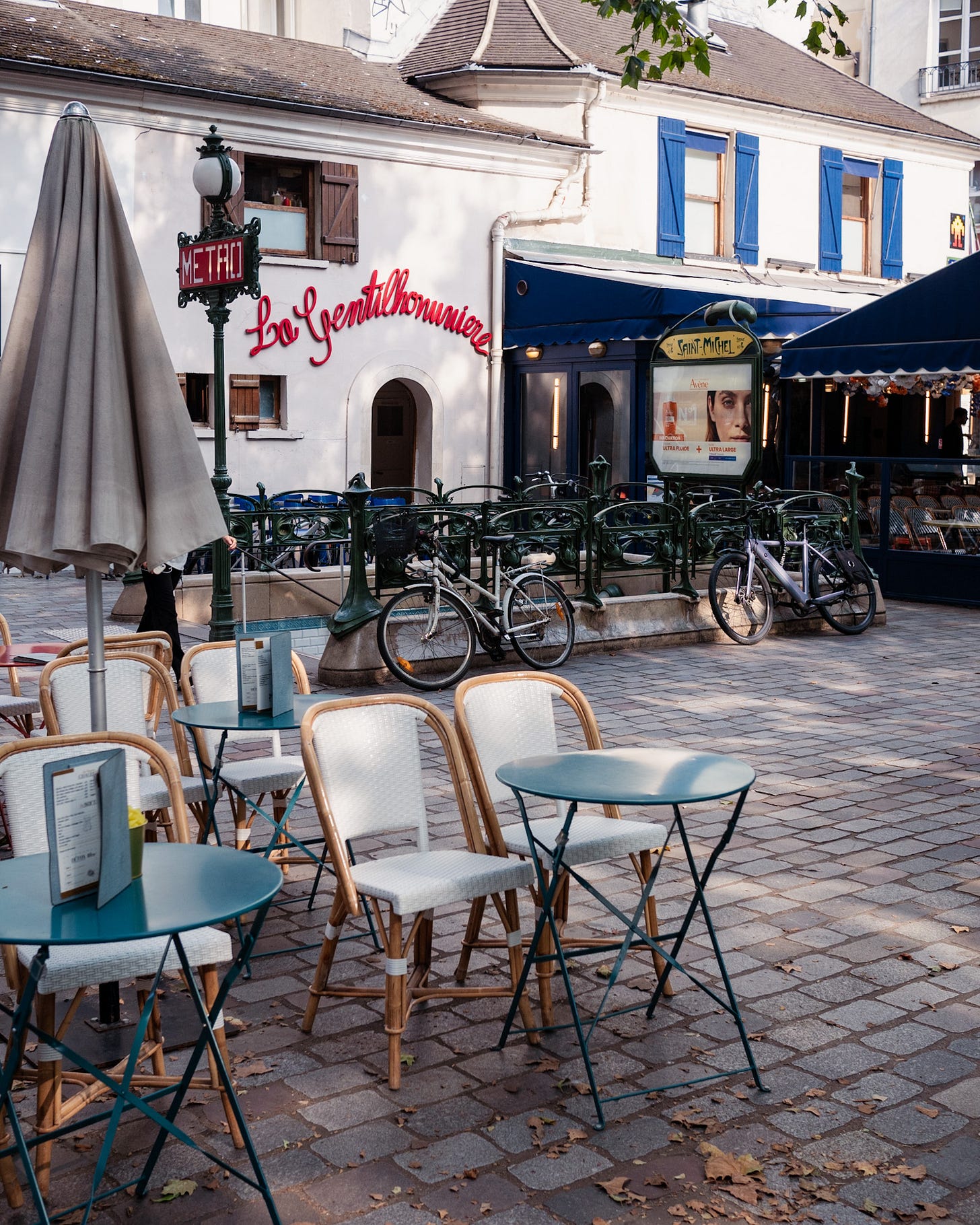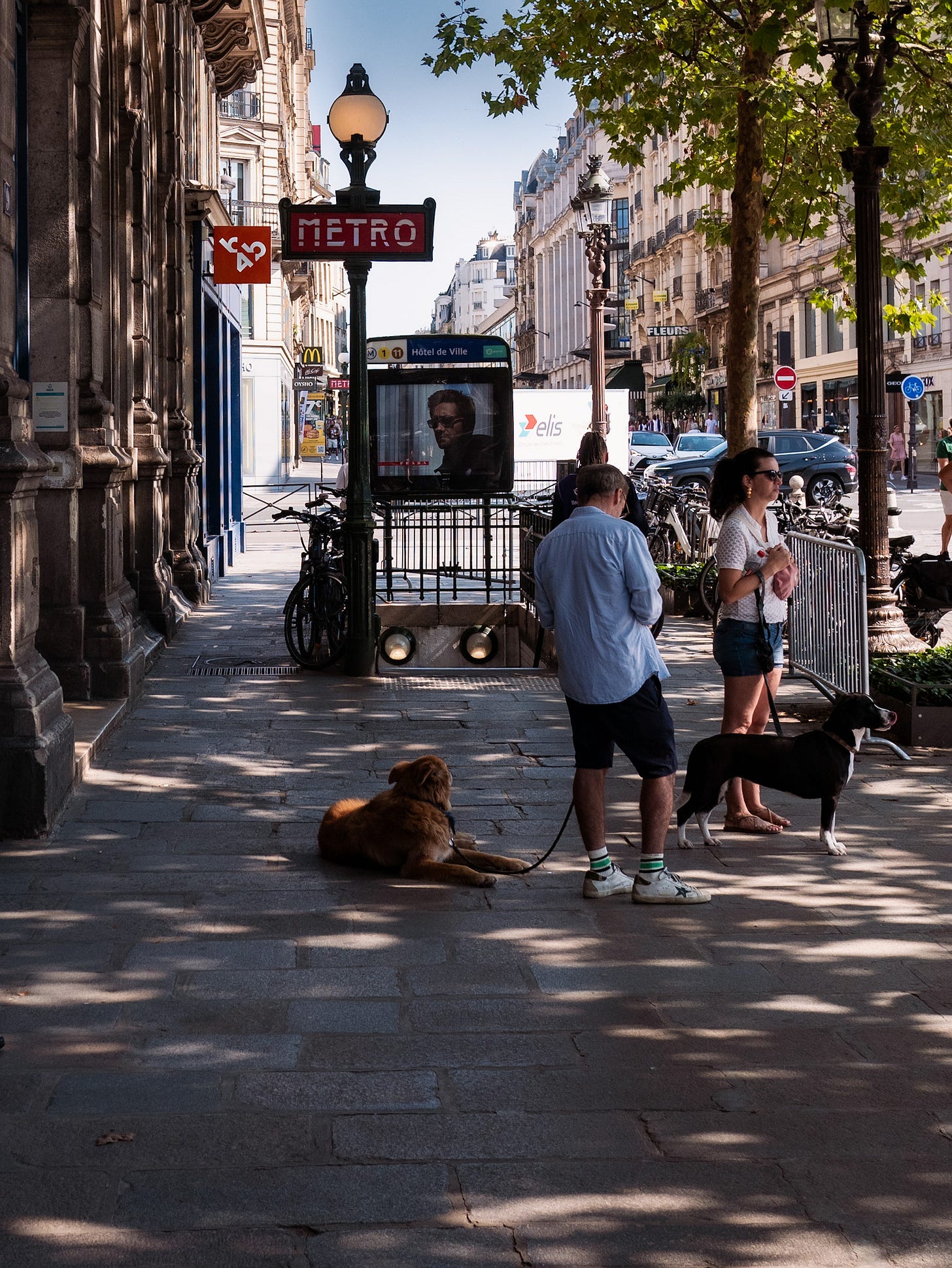5 unexpected things that happen when you begin speaking French
Learning French in France- Part II, Identity Shifts, and Awkward Moments
Welcome back to my series on ‘Learning French in France,’ which is ostensibly to help other language learners cope with the challenges of such an endeavour. But actually, it might just be a way for me to process both the highs and the heaviness of learning a new language.
Scholars and academicians have been writing about how different languages come with their own cultural and social underpinnings. These lie at the very foundation of language, but they might completely escape our notice unless we really start speaking the language with people outside the classroom. For example, is it even French if you don’t say bah-oui instead of a simple oui when you want to agree with supreme enthusiasm! Or learn how to use hopla or tac. Ok, I am getting side- tracked. Let’s keep the subject of onomatopoeic French words for my next letter.
Indeed, speaking a new language is supposed to change you in deep and unexpected ways. In this instalment of my series, I want to share 5 surprising things that happened when I started speaking French. Let me know if these are just uniquely my experiences or did you have any of the same feelings when you learnt a new language.
You realise your priorities in life
When you first take up French, there is a foundational set of verbs you need to master first and foremost in order to operate in daily life. This first level, I would call the functional verbs. These are things such as eating, going, doing, asking etc. which are extremely utilitarian and necessary.
The there is a second layer of French vocabulary which you would need for self-expression. Do not worry, you don’t need to go look for them. These French words will find you. This tier is made of words which are specific to you, your interest, your habits, your lifestyle. These words are related to your life, and your unique experiences and likes and dislikes. You might be surprised how often you like to talk about particular subjects or things.
And often, realising this might give you a new window onto the ways in which you exist in this world, and the things you prioritise. For some, the priority could be as simple as learning the French words for ‘operation manager,’ or it could be as complex as the words to explain the feeling of being dislocated. I wrote about this word in this letter.

You have to rebuild your identity
I always prided myself in being eloquent & articulate. Having been an academician and a teacher of sociology, I had ingrained in me that being able to speak publicly, to distil information and share ideas, are part of my skill-set and personality. So, you can imagine what a challenge it was for me to accept that while that might be true in an English-speaking world, in France, I was on the opposite end of the spectrum. My vocabulary when I first began speaking French was less than that of a 4-year-old’s (No shade to 4-year-olds).
And I am not going to lie, it did provoke some existential anxieties. The additional burden of being an immigrant, such as looking for a new job, trying to make friends etc, did not help my case surely. But I think once I accepted that while, I might not sound as smart, witty or funny in French, as in English, I should not let that keep me from expressing myself anyway.
I began to stress less about sounding stupid or smart, and more about being able to relay complete information. You have to accept this awkward, painful moment in language learning. And remind yourself it is temporary!
Speaking a new language might seem limiting, but at the same time, it is also freeing. Instead of sticking to who you thought you were, it is also an opportunity to create or discover new facets of yourself and your personality. For example, I think my physical comedy is much better in French. Ahem. For obvious reasons. Small win but I will take it!
You will accidentally say a lot of inappropriate things
On that note, forget being eloquent and elegant, you will accidentally use wrong words at the wrong time. As I mentioned before, there are many kinds of French: formal, informal and standard. This is true both for words, and sentence structure.
The entanglement between these different kinds of French can be convoluted. Using formal French might get you weird looks from your French friends, since it is mostly used in writing. On the other hand, using informal French can come off as impolite and inappropriate in formal settings like an office, school and depending on who you hang out with, even a dinner table.
Make no mistake, informal words do not mean offensive, but they are vulgar words that originate from the streets and suburbs. Needless to say, these differentiations are extremely steeped in class. Although today, the class boundaries are shifting with the new generation embracing many informal words wholeheartedly. In any case, before repeating words you heard on the streets, or things you picked up from some movie or song, always ascertain if it is formal, informal or standard French.
For example, one time while out for lunch with friends, I used the word bouffe to refer to food instead of the standard nourriture. I thought that’s what the cool kids say. The friend I was talking to paused the conversation to express his surprise and pointed out, that it is actually extremely informal/ vulgar a word to use. Between gasps of laughter, he underlined it was jarring for him to hear me say it. As an average wannabe-chic, 35-year-old woman I was using vulgar street slang. Not the aura I was going for!
But it happens. You have to give yourself permission to feel silly and make mistakes. There is a mono-syllabic (to my ear) difference between baiser and baisser, but while the first one means kissing, the second means reducing. So, you might accidentally ask your vendor if the price of broccolis is kissing instead of reducing (unfortunately, another true story).
Sometimes you will miss not understanding French
Yes, it is a terribly satisfying feeling to realise that you are able to follow every conversation. You should rejoice that you now understand the jokes of the wisecracking vendor at the farmer’s market. Rightly so! You made it this far. But truth be told, there are times I miss the feeling of not fully comprehending French.
This is especially true when you are sat in crowded Paris bars, almost rubbing shoulders with people seated in the next table. Earlier, it did not bother me at all because quiet frankly, I did not understand a word. No française, no distraction. It was all just white buzzing noise to me. Like mood music in a dive bar. But now that I understand all the stories, words, and bad jokes floating around me, its too easy to be distracted by them.
On a serious note, I also experience a desire to go back to not knowing French sometimes when I have negative social interaction. Being a woman of colour from India,I have had more than my share of indelicate, impertinent and downright rude questions/ comments. Sometimes it makes me wish for the days when I would have been blissfully clueless, or just assumed I misunderstood what they said.
But you will also find compassion & empathy when you least expect it
I remember the first time a stranger stopped me in Paris and asked me for directions. I was walking in my neighbourhood around Boulevard Richard Lenoir. A French person asked me for the nearest metro station, and I replied in French. When they thanked me and exchanged pleasantries, which mainly consisted of complaining about Google maps, I think I blanked out with happiness. I drowned in the warm smugness of belonging. I looked like someone who knew her way around my Parisian neighbourhood? Like someone who belonged?
And it was only the beginning. I am happy to say, I have had way more meaningful exchanges with strangers in French since then. But the first time will always stay with me. In spite of everything I wrote above, you would not believe the number of doors and hearts that would open once you start speaking French.
It is true that French people have the rightly-earned reputation of being over-zealous about their language, mercilessly correcting every grammar, syntax and pronunciation errors. But on the flip-side, even if they might not express it enough, they really appreciate you speaking the language. And trust me, when it comes to speaking correctly, they are even harder on themselves than they are on you.
When you least expect it, you will be met with strangers who will be kind to you, you’ll even have deep conversations with acquaintances even with your broken French, and have friendships where your spoken language is French! Trust me, there are more than enough French people in the world who will overlook your bad grammar and terrible pronunciation, and focus on the depth of your ideas and thoughts.
After all, isn’t that what all of us language-learners are seeking above everything? These moments of deep human connections and meaningful conversations.








I can definitely relate to saying inappropriate things without knowing. Do be careful with "baiser" -- it's true that it can mean a kiss, but it can also mean something else. I avoid that word almost always haha. Bonne continuation :-)